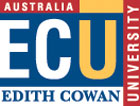Bachelor of Science (Exercise Science and Rehabilitation)
Bachelor of Science (Exercise Science and Rehabilitation)
Are you interested in using exercise to improve people’s health, fitness and general well-being? If so, you should consider a career as an Exercise Physiologist through studying our Bachelor of Science (Exercise Science and Rehabilitation). When you graduate from this degree you will be eligible to apply to become an…
Categories
COURSE DESCRIPTION
Are you interested in using exercise to improve people’s health, fitness and general well-being? If so, you should consider a career as an Exercise Physiologist through studying our Bachelor of Science (Exercise Science and Rehabilitation).
When you graduate from this degree you will be eligible to apply to become an Accredited Exercise Physiologist with Exercise and Sports Science Australia (ESSA). Exercise Physiologists help other people improve their lifestyle and recover from injuries and chronic conditions through exercise.
In this 4-year degree (full-time) you’ll gain knowledge, skills and experience in clinical exercise delivery, healthy lifestyle intervention and wellness programs for people living with chronic conditions, disabilities or injuries, as well as the healthy population.
More qualified professionals are expected to be needed as the population grows and ages, with employment opportunities in public and private hospitals, workplace health and rehabilitation, aged care facilities, sports organisations and more.
You can study units for this degree on-campus with weekly lectures and laboratories or through a blended format that involves weekly online content, such as lectures, laboratories, tutorials and/or seminars, accompanied by timetabled, intensive on-campus laboratory sessions twice per semester.
Course learning outcomes
Apply broad discipline knowledge to a range of clinical exercise and sport science theoretical and practical situations.
Think critically to analyse, interpret and solve complex clinical exercise and sport science situations.
Think creatively to anticipate challenges and generate solutions in clinical exercise and sport science contexts.
Use digital technologies and literacies to assess, evaluate and synthesise information from multiple sources.
Communicate clinical exercise and sport science knowledge, concepts and skills to diverse population groups.
Demonstrate a global outlook in clinical exercise and sport science situations, showing sensitivity for diversity, including Aboriginal cultural competence.
Demonstrate appropriate social and ethical values by working cooperatively and collaboratively in clinical exercise and sports science settings.
Demonstrate autonomy, accountability and initiative for own learning and professional practice.
Career Opportunities
Possible future job titles
Professionally-Accredited Exercise Physiologist, Exercise Rehabilitation Coordinator, Exercise Science Researcher, Compensation & Rehabilitation Officer, Exercise Rehabilitator, Workers’ Compensation Officer, Health Care Officer, Occupational Rehabilitation Officer, Work Cover Services Manager, Injury Management Officer
REQUIREMENTS
There are various ways to meet our admission requirements, such as:
Secondary school results
Successful completion of one year of tertiary study from a recognised institution
Completed Diploma program from a recognised institution
English competency requirements:
IELTS Academic: An overall band minimum score of 6.0, with no individual band less than 6.0. (Results are typically valid for 2 years and online tests are not acceptable.)
TOEFL iBT: 70 (no individual score less than 17)
TOEFL Paper-Based Test (PBT): Minimum score of 550, including Test of Written English of 5 or better. (Results are typically valid for only 2 years.)
Pearson Test of English (PTE) Academic: 52, with no scores less than 50. (Results are typically valid for only two years.)
EDUCATIONAL INSTITUTION
Edith Cowan University (ECU) is a large, multi-campus institution serving communities in Western Australia and internationally.ECU was awarded university status in 1991, but despite its relative youth, the University has a proud history of more than a century of service to education in Western Australia and is recognised for its teaching and learning, excellence in research, and partnerships with the community.We have more than 23,300 students, including around 18,500 undergraduates and 4,800 postgraduates. Approximately 3,600 international students attend the University, originating from 104 countries.We are a progressive University with courses developed through ongoing industry input, and employing lecturers who engage fully with their students. We’re a university that knows while knowledge is important, understanding comes from experience –experience that enables you to adapt what you’ve learned to whatever opportunities come your way. Because that’s when you do more than just survive in this world. You thrive in it.




